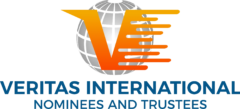Last week, we brought you part one of our series on what 21st Century African Lawyers need to know. This week, part two, which is also the final part of our series, examines the 2018 International Association of Young Lawyers Survey and Report on the future of law practice. The Report identifies the following as threats to the legal profession: resistance by lawyers to innovate; commoditization of legal services; privatization of justices; the use of new technology; and the rise of alternative legal service providers. These deserve the needed emphasis for the 21st century African lawyer.
Resistance by lawyers to innovate
Resistance by lawyers to innovate is considered as the first biggest threat to the future of the legal profession. The challenges and opportunities that the 21st century presents far exceeds the conservativeness and the traditional ways of delivering legal services. Although this survey focuses on European lawyers, it is our argument that the story is not so different in respect of legal practitioners in Africa; a continent, challenged in many ways. Thus, openness toward innovation is critical if the 21st century African lawyer is to survive the future of the legal profession.
Michele DeStefano & Guenther Dobrauz in their article, New Suits Appetite for Disruption in the Legal World called for innovation in the legal profession in the following terms:
“I have concluded that when clients ask for innovation, they are not asking for shiny new toys; instead, what they are really asking for (but not directly) is a new type and level of service. Clients truly desire for their lawyers to create new products, apps, or platforms. My research suggests that clients crave the new way of collaborating with their lawyers and the new kind of service that comes from the undergoing of the innovation process. Whether the client really wants innovation or not, in most cases, at a minimum, the call for innovation is also a call for service transformation in disguise.”
Therefore, the call for innovation is one that requires the African lawyer to harness the power of technology and the internet to improve the delivery of legal services to avoid losing clients or entirely going out of business in today’s rapidly changing legal market.
Commoditization of legal services
Commoditization of legal services is the offering of legal services as a product or a commodity. This was rated by the 2018 Survey and Report mentioned above as the third biggest threat to the future of law practice.
The traditional delivery of legal services in the 21st century faces an existential challenge from its online alternatives. Legal services, usually involving less complicated transactions and litigation, are now seen as commodities in this age of online-based delivery of goods and services. With commoditization, consumers or clients for a charge are offered less complicated and less expensive downloadable packages that enable them to undertake a do-it-yourself legal work. LegalZoom for instance provides online services for consumers to draft their wills, patents and trademarks among others.
It must, however, be noted that some law firms are also adapting their practice and business to the commoditization of legal services. An example worthy of note is Cooley Go developed by Cooley LLP, which is an open store where entrepreneurs can get non-disclosure agreements and other simple and small legal documents and services, tips, tools and guides for startups at no charge, so that the client or customer may approach the firm at a future date when more complex legal services are later required by these startups. Axess Law offices is also an example in shopping centers and malls providing similar services like Cooley LLP.
Privatization of Justice
There is a growing trend in justice delivery, with a focus on, dispute resolution mechanisms of private and profit making agencies, who sit as arbitrators, mediators, conciliators to settle disputes. They facilitate the settlement of disputes in a manner usually different from the traditional court system. There is a shift from the delays and congestion associated with the courts towards alternative dispute resolution, which provides quick access and quick delivery of justice. In Ghana, the Alternative Dispute Resolution Act, 2010 (Act 798) makes a good case for the privatization of justice, which is expanding the frontiers in terms of delivery of justice.
It is important to mention that this area of private justice is also experiencing the incursion of robots and artificial intelligence, popularly referred to as AI; iCan systems, a Canadian electronic negotiation system is used as a mediator to resolve disputes. Smartsettle ONE is also an example of AI that is replacing human mediators to settle disputes.
Use of new technologies
Artificial intelligence (AI) technology is changing the landscape of the legal market and the legal profession. It is gradually becoming an integral part of the profession. Litigation prediction is one area where aspects of AI or machine learning models are used to predict the outcome of cases, using inputs of relevant precedents and fact patterns to achieve an accurate outcome. It has been argued that in a matter of a few years this AI would be the starting point of all legal advice.
In the area of legal research; companies like Casetext and ROSS Intelligence are developing research platforms capable of understanding complicated legal meanings and opinions; they go beyond the usual key words matching to bring out existing laws and opinions relating to research. Also, in the area of Contract Review; startups like Lawgeex, Klarity, Clearlaw and LexCheck are developing AI systems that use natural language processing (NLP) technology, to automatically analyze contracts to determine which portions of the contract are acceptable and which portions are problematic and hence require consideration.
The rise of alternative legal services providers
The complexity of the services offered and tasks performed by lawyers continue to rise as the profession is pushed into transition by globalization. The 2018 Report mentioned above reveals that law firms are likely to employ or engage the services of non-lawyers like project managers, legal technicians and technology to leverage the delivery of services to meet clients’ needs and expectations.
According to the Thomas Reuters Legal Executive Institute’s 2019 Report on Alternative Legal Service Providers (ALSPs), many of the tasks traditionally done by law firms including: litigation and investigation support, legal research, document review, eDiscovery, and regulatory risk and compliance are now being performed by ALSPs. From the Report, ALSPs have now gained substantial market shares in litigation and investigation support, and they are now considered major players in the market for legal research. Technology-enabled services allow ALSPs to provide higher value and take on more complex tasks using artificial intelligence (AI) systems.
From the foregoing, it has become imperative for the 21st Century African lawyers to innovate and adapt their practice in order not to be pushed out by the identified threats to the legal profession.
CONCLUSION
Creative and innovative legal education and training is therefore required to prepare and equip the 21st Century African lawyer in this era of globalization. We may look to programmes that focus more on integration between theory and practice such as The LawWithoutWalls programme (LWOW) to well equip the 21st Century African lawyer. The LWOW programme is a part-virtual collaboration which is designed to enable students, academics, and professionals to connect over issues facing the legal profession, solve legal problems, and develop the skills students need to compete in a global marketplace. It is a cooperative partnership among leading law and business schools across selected countries and lawyers, business professionals, entrepreneurs, and venture capitalists from various parts of the world. This is an example of what the legal profession in Africa needs in order to keep pace and remain relevant in this rapidly changing global marketplace.
By: Peter Amissah
Veritas International Nominees & Trustees
w: Veritas International Nominees and Trustees
t: 030 296 4498
l: Rooms 8 -10, 4th Floor, GNAT Hall, Teachers Hall Complex, Adabraka-Accra




